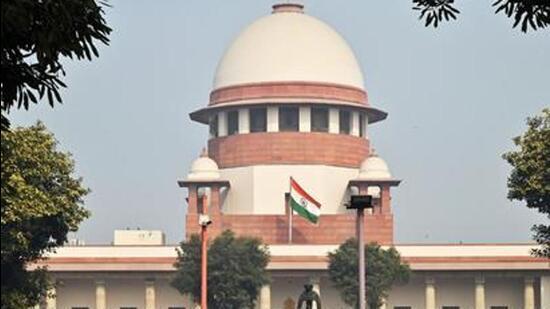
Calling someone ‘Miyan-Tiyan’ & ‘Pakistani’ not an offence: Supreme Court
In a recent ruling, the Supreme Court of India has stated that calling someone “Miyan-Tiyan” and “Pakistani” is in poor taste but does not constitute a criminal offence. The court’s decision came in response to a case filed against an 80-year-old man from Jharkhand, who was accused of hurling abuses at an Urdu translator.
The incident took place in Jharkhand, where the 80-year-old man allegedly used the derogatory terms “Miyan-Tiyan” and “Pakistani” while interacting with the Urdu translator. The translator was reportedly offended by the remarks and decided to file a complaint against the elderly man.
The case was taken up by the court, which reviewed the evidence and arguments presented by both parties. After careful consideration, the Supreme Court ruled that the remarks made by the 80-year-old man did not amount to hurting the religious sentiments of the translator.
The court’s decision has sparked a heated debate in the country, with many people questioning the wisdom of using such derogatory terms. While some have argued that the remarks were indeed offensive and should be punished, others have defended the use of the terms, citing their cultural and linguistic significance.
The term “Miyan-Tiyan” is a colloquial expression used in some parts of India to address a person, particularly in informal settings. Similarly, “Pakistani” is a term used to refer to people from Pakistan. While these terms may be perceived as derogatory by some, the Supreme Court has ruled that they do not constitute a criminal offence.
The court’s decision has significant implications for the way we approach religious and cultural sensitivities in India. In a country where diversity is a hallmark, it is essential that we respect the beliefs and practices of all communities. While the use of derogatory terms may be considered offensive, it is crucial that we approach such issues with sensitivity and nuance.
The Supreme Court’s ruling has also highlighted the need for greater understanding and empathy between different communities. In a country where religion and culture play a significant role in shaping our identities, it is essential that we foster greater tolerance and acceptance.
The case also underscores the importance of context in determining the severity of an offence. While the remarks made by the 80-year-old man may have been deemed offensive by the translator, the court has ruled that they do not constitute a criminal offence. This decision serves as a reminder that we must approach such issues with a nuanced understanding of the context in which they occur.
In conclusion, the Supreme Court’s ruling on the use of the terms “Miyan-Tiyan” and “Pakistani” serves as a reminder of the importance of respecting cultural and linguistic diversity in India. While the use of derogatory terms may be considered offensive by some, it is essential that we approach such issues with sensitivity and nuance. The court’s decision has significant implications for the way we approach religious and cultural sensitivities in India, and serves as a reminder of the importance of fostering greater understanding and empathy between different communities.






